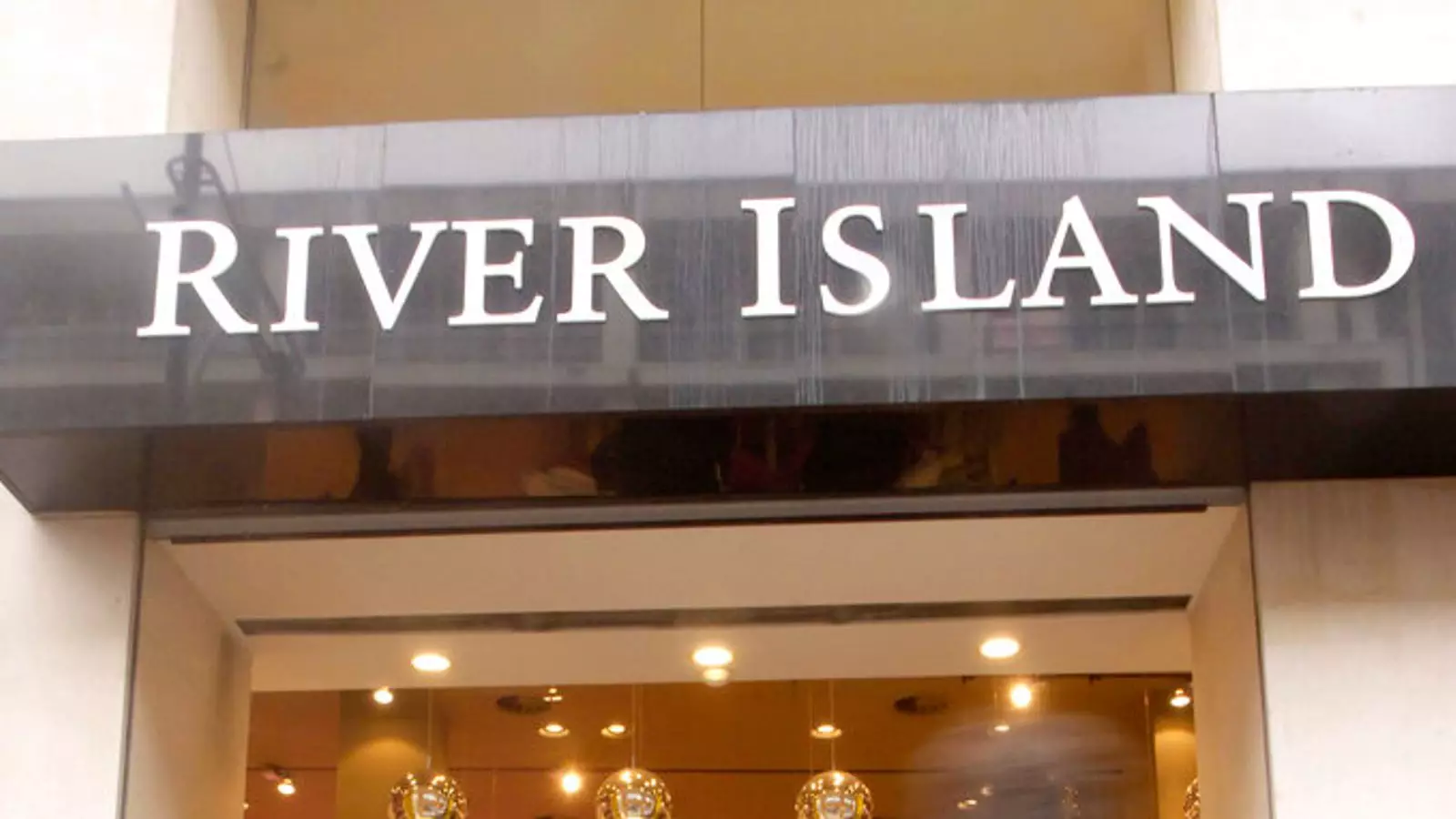River Island, a staple of British high street fashion, is staring down the barrel of a financial crisis that could irrevocably alter its operation. Established in 1948, and recognized for its trendy yet affordable clothing, the brand has become synonymous with youthful exuberance. However, as it flirts with a radical rescue plan, it finds itself at a crossroads, with the potential closure of numerous stores and the loss of thousands of jobs looming large. This situation raises serious questions about the viability of traditional retail in an increasingly digital landscape.
It’s striking to consider the plunge into the depths of financial despair that River Island has taken. With a reported pre-tax loss of £33.2 million and a staggering 19% drop in turnover for the year ending December 2023, the once-thriving brand is grappling with a slew of challenges. What’s the reason behind this dramatic shift? The answer lies not just in the ordinary ebb and flow of market dynamics, but rather in an uncomfortable truth: the retail sector’s systemic vulnerabilities in the face of modern consumer behavior.
The Retail Landscape: A Battlefield
The landscape for fashion retail has undergone a seismic shift. The rise of e-commerce has redefined how consumers shop. Comfort and convenience have supplanted window shopping for many, revolutionizing expectations around speed and diversity in buying experiences. River Island’s struggle to adapt to this new norm accentuates the broader malaise afflicting numerous high street retailers. No longer can traditional stores remain static and hope for foot traffic to sustain their sales; agility and innovation have become paramount.
Additionally, the market is sushi rolled in competition. New players, especially in online retail, have not only disrupted established brands but also reshaped consumer preferences with a click. Faced with a multitude of choices, shoppers are increasingly lured away from traditional retailers. River Island’s slow adaptation, perhaps stemming from a reluctance to abandon an established business model, illustrates a critical error in an industry that demands rapid resilience.
Financial Turbulence: A Complex Web
As River Island scrambles to devise a comprehensive restructuring plan in collaboration with financial advisers from PricewaterhouseCoopers (PwC), the implications are severe. The restructuring process, while a potential lifeline, walks a fine line between recovery and irrevocable damage. Previous examples in the retail sector serve as stark reminders of the fragility of even well-established firms. It seems ironic that while River Island has accumulated a rich history, it now stands in the shadow of history’s harsh lesson: survival is no longer guaranteed simply because one has been around long enough.
Moreover, recent socio-economic challenges compound River Island’s troubles. Inflation, spiraling energy costs, and disrupted supply chains have precipitated a crisis that seems far removed from the company’s original ethos of accessibility and value. The urgency echoed in their accounts reflects heightened financial and operational risks. If the predicted realignment fails to materialize swiftly, the results could be disastrous—not merely for the business but for communities that rely on these jobs.
A Broader Reflection on Policy Impact
An often-overlooked player in this unfolding drama is government policy. The backlash from prominent retailers, including River Island, against tax reforms proposed by Chancellor Rachel Reeves speaks volumes about the tensions and challenges faced by businesses navigating an already tumultuous environment. If policy decisions prioritize short-term revenue over long-term viability, we risk sacrificing our cultural fabric of high street retailers for fleeting fiscal gains.
The significance of River Island transcends mere fashion; it embodies a socio-economic landscape comprising hard workers who depend on this institution for their livelihoods. In light of this, it becomes paramount to foster an environment that encourages adaptability within the retail sector, incorporating regulatory frameworks that both promote growth and allow for innovative evolutions in customer engagement. If policymakers fail to recognize this reality, the collapse of more established entities like River Island will be but a precursor to a larger disaster reflecting on the high street as a whole.
As River Island navigates this critical juncture, the stakes are high, and the need for a transformative vision is urgent. The question remains: will the brand emerge as a phoenix from the ashes or fade into the annals of retail history? The outcome will set a precedent not only for the company itself but for an entire industry desperately trying to redefine itself in an age of relentless change.


Leave a Reply